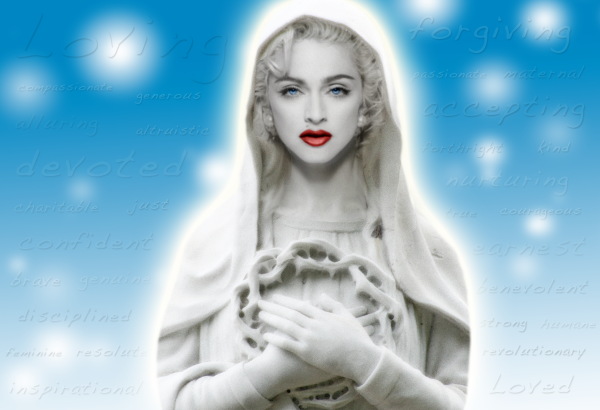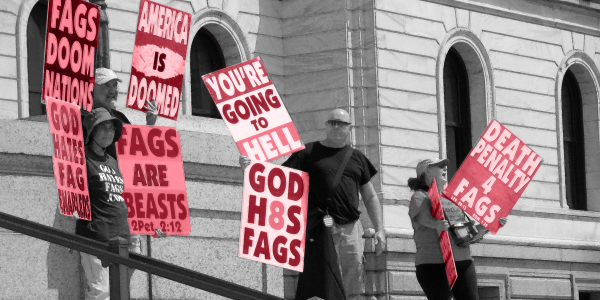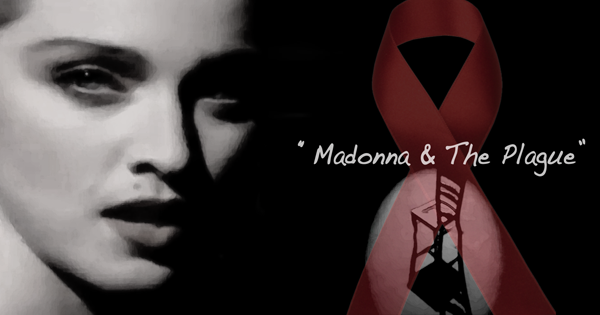“Surely, whoever speaks to me in the right voice, him or her I shall follow. As the water follows the moon, silently, with fluid steps, anywhere around the globe.”
~ Walt Whitman
Denise was a good Christian. I know she was a good Christian, because when I worked with her at a call center in the early 1990’s, she reminded me that she was a good Christian frequently. She loved all things Jesus, even brought a bible to work, which she’d fuss over and highlight in between calls.
I was no stranger to good Christians. My mom’s family was Catholic, my Dad’s family was Baptist, and I was educated by nuns up until high school. All of them were good, honest, hardworking people, but their time with God tended to be more intimate, not so brazenly in my face. Something about Denise’s Christianity was more aggressive. It felt more offensive, or at least I felt more guarded and guilty around her.
Back in the early 1990’s, I was but a wee queer, still somewhat closeted and not yet at peace with my homosexuality. The output resulted in me being a mild mannered, agreeable, clean-cut banker by day / boy crazy, booze guzzling, sinner by night. So while Denise rubbed many of my coworkers the wrong way, I entertained her biblical ramblings, even when her venomous sermons were directed at gays.
In a sense, I saw Denise as my penance, a reminder of how unchristian I had become.
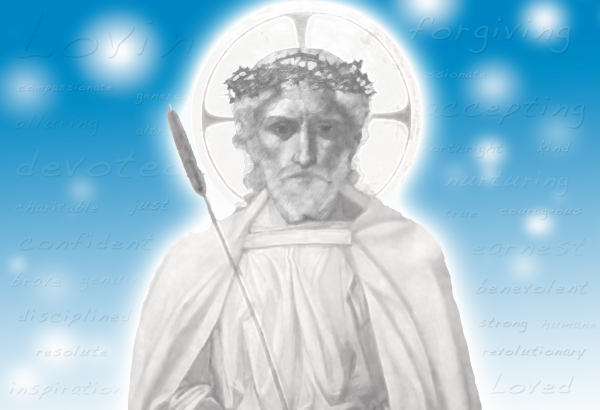 “The cross is a very powerful symbol. While it symbolizes suffering, it also is connected to a person who was loving and sharing and his message was about unconditional love… For me, we all need to be Jesus in our time.”
“The cross is a very powerful symbol. While it symbolizes suffering, it also is connected to a person who was loving and sharing and his message was about unconditional love… For me, we all need to be Jesus in our time.”
~ Madonna
Once upon a time, Jesus and I had also been tight. As a boy, while others fantasized about being astronauts and cowboys, I dreamed of becoming a priest. While I wasn’t as fanatical as Denise and didn’t highlight a bible or jeer those who did Jesus wrong, I was still moved by his sacrifices and inspired by his teachings. Like Jesus, I was also in it for the love and wanted to encourage others to be more compassionate and kind.
My childhood aspirations were short lived, however, and by the early 1980’s, when puberty kicked in, my relationship with Jesus grew strained. While I still wanted to invite others to be more charitable and loving, upon realizing that I was gay, it became apparent to me that the priesthood wasn’t my calling. I also began to question whether my bond with the Son of God would endure the test of time.
Before coming out to anyone, I came out to Jesus. When we were alone, I would ask him to absolve me of my sins, to give me the strength to overcome my urges. My efforts proved to be futile, however. With time, my desires only grew stronger and confiding in Jesus became increasingly awkward. Around him, I felt defeated and perverse, undeserving of his friendship and attention. Despite my hopes to the contrary, I feared, in the end, I would only let Jesus down.
As a result of the friction, although it pained me to do so, I made a conscience decision: I stopped praying and parted ways with my childhood companion. I didn’t see my separation with Jesus as succumbing to sin, so much as I saw it as a recognition that Jesus and I had outgrown one another. There were some lessons in life, I concluded, Jesus wouldn’t be able to teach me. If I was to have a role model that would accompany me into adulthood, I needed someone that would be less prudish and, dare I say it, more forgiving.
I didn’t have to wait long.
Perhaps it was divine intervention, but in the absence of Jesus, I soon found solace in another, a woman who seemingly couldn’t be more divergent than the Son of God… Where Jesus and I had parted ways, Madonna found me: wounded and alone, needing to be healed.
“Only the one that hurts you can make you feel better. Only the one that inflicts pain can take it away.”
~ Madonna
While comparing Madonna to Jesus may seem blasphemous, her influence on me throughout my adolescence and adulthood would prove to be equally profound. While Madonna may be unsung by the church, she would nonetheless play a critical role in liberating me from the demons that haunted me as a boy.
In Madonna, I found a new religion. Where Christianity had been sterile and claustrophobic, Madonna was inclusive and lighthearted, a testament that life should be lived without judgement and inhibitions. Like some mystical priestess ordained in rosaries and lace, she invited me to envision a world less monochromatic and stale, where people were more diverse and festive, and even a gay kid like me was welcomed to the party.
Admittedly, the gospel according to Madonna is grittier and more taboo. For me, it proved to be a tale about coming of age. Throughout my missteps, heartbreak, and tears, however, Madonna’s voice and optimism would ground me, make the angst of coming out all the more bearable. While friendship with Jesus came with prudence and stipulations, in Madonna I found my rebel heart, a role model that supported my sexual independence and explorations into adulthood.
In effect, Madonna would do what Jesus had been unable to accomplish: she inspired me to live my life, not a lie.
As a rebellious teenager, I assumed that I was drawn to Madonna for her defiance of the church. And while I found her capacity to provoke and agitate validating, looking back on 1984 and all the years that followed, with age I’d come to realize that my attraction to Madonna was more wholesome and noble than I initially thought.
While on the surface Madonna and Jesus may appear to be polarizing figures, the more I pondered my relationship with both, the more I realized: I was drawn to Madonna for the same reason I gravitated to my estranged childhood friend. While the paths I traveled with each were divergent, the destination was the same.
Like Jesus and me, Madonna was also in it for the love. And like all inspiring gospels, Madonna’s came with a moral, and it was as simple as it was profound: celebrate life, love unconditionally, and when the moment presents itself, never shy away from a dance floor.
To highlight the parallels of both my mentors, ironically, I had Denise – the good Christian – to thank.
“Poor is the man whose pleasures depend on the permission of another.”
~ Madonna
By the time I met Denise, Jesus and I had been estranged for a decade, so engaging her was like hearing about an old childhood friend but discovering how much he’d changed. Through Denise I learned that Jesus had become more spiteful, angry, and judgmental, far less friendly than the generous man I knew as a boy. He’d gotten bitter with age, had a scowl embedded into his face…
To my dismay, Jesus had done the unthinkable: he’d become a hater.
But then one afternoon, while Denise was speaking in tongues and my coworkers were gouging their eardrums with letter openers, I had an epiphany. I noticed the cops talking to the Director of Operations, and if there was anything that would help me reevaluate my religion, it was watching my boss escort the police towards me when I had a bag a weed in my backpack. Before I could fall to my knees and beg for forgiveness, however, I realized something: the police weren’t there for me. They were there for Denise, who I’d soon discover had been embezzling money from customers.
I learned an important lesson that afternoon. I was naive to take Denise at her word. Had I been paying attention to her actions instead, I would’ve realized Denise wasn’t so Christian after all. She participated in potlucks begrudgingly, yet she ate more than her share. She never pitched in when extra hours were needed or a coworker’s shift had to be covered. And perhaps most telling of all, she always rushed customers off the phone, so afterwards she could judge and mock them, determine who was going to heaven or hell by their debits and credits.
Although I never claimed to be otherwise, I was guilty of being unchristian the afternoon Denise was arrested. I took satisfaction in seeing her led away in handcuffs. I was comforted by her hurt expression, when I announced to my coworkers, “There goes a good Christian woman.”
I realized that day that Jesus never left me. Like many gay people, I was guilty of allowing others to influence my identity and self worth. While I hadn’t encountered the likes of Denise when I was a kid, the church had nonetheless led me to believe that being gay was a sin. In doubting myself, regrettably, I had enabled others to define my relationship with God.
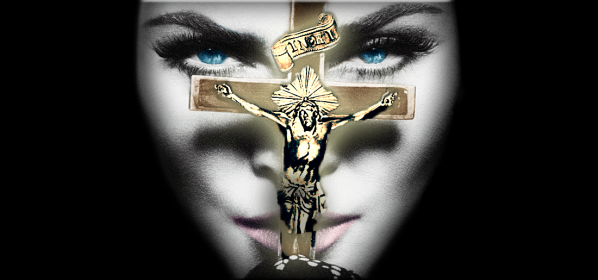 “I am the moon with no light of my own. You are the sun guarding your throne… I’ll light the candle here in the dark, making my way to your heart.”
“I am the moon with no light of my own. You are the sun guarding your throne… I’ll light the candle here in the dark, making my way to your heart.”
~Madonna
![]() While I am no longer religious, and I don’t actually think Madonna is the Messiah, is it so unfathomable to consider that instead of a son, God might send us his spirited baby girl? And are we foolish and naive to assume such a woman would be pure and the void of sin? To me, that doesn’t sound like much of a trial or tribulation.
While I am no longer religious, and I don’t actually think Madonna is the Messiah, is it so unfathomable to consider that instead of a son, God might send us his spirited baby girl? And are we foolish and naive to assume such a woman would be pure and the void of sin? To me, that doesn’t sound like much of a trial or tribulation.
It’s easy to see Madonna as the devil incarnated, there to lure a generation into a life of sin. Yet it’s for that reason I am a disciple, why I find Madonna fandom as validating as I do liberating. Because to truly appreciate Madonna, after all, I resisted the urge to judge and mock her. I had the proclivity to ignore the righteous indignation of the mob, the wherewithal to grasp: Madonna isn’t selling heresy and sin, she’s challenging all of us to be less judgmental, intolerant, and dogmatic, more forgiving, open-minded, and merciful. Madonna raises my spirit, because she knows what it means to be judged by those who are shackled to the ground.
Whether you pray to Jesus or idolize Madonna, the lessons we learn are what define us. Be weary of those who would confine your soul to a cage, who would lead you to believe that you are unworthy of love or entry to heaven unless you obey their doctrine and share their worldview. That’s not Jesus or Madonna talking; it’s something far more sinister, predatory, and damning – Hate.
I thank Denise for the lesson she taught me. Had it not been for her, I may have remained naive to the intentions of those boasting to be good Christians. Because of her, I am richer for knowing: the real sin is distorting love and turning it into something dirty and perverse, only worthy of those who have the arrogance and audacity to presume to speak for God.
I’ve known and loved many good Christians in my lifetime, yet they never flaunted their Christianity. They never used Jesus as a weapon, because doing so, they recognized, would be unchristian. Instead, they lived life by Christian values. They were gracious, kind, and forgiving, and offered help when they could. But they left judgement to the almighty.
To all the good Christians spewing condemnation and hate, I reserve these parting words for you. If you are truly a good Christian, then I challenge you to be be more Christlike: forgive the sinners, care for the poor, and embrace your lepers. But get your bible out of my face.
Don’t hide behind a book and tell me you’re a good Christian. Prove it. Be more like Jesus and Madonna, and strive to make the world a better place.
Choose love over hate, starting with yourself.

